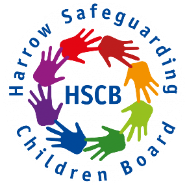Prevent – Radicalisation
We all want our children to live in a safe and loving environment so that they can grow up to become happy, confident adults. You will already know that your children can be vulnerable to risks both inside and outside the home, and will have taken steps to protect them so they can grow, learn and develop to their fullest potential.
Protecting your children from radicalisation and extremism is similar to protecting them from the other harms you may be more familiar with, such as drugs, gangs and sexual exploitation.
Find out more here.
The Department of Education has produced an updated advice website, booklet and top tips for parents on protecting children from extremism and radicalisation. Access the website here.
The leaflet includes practical advice and information on support such as Channel, the multi-agency voluntary programme which safeguards people who may be vulnerable to radicalisation. See the leaflet here.
Top tips to help parents discuss radicalisation and extremism with children are available here.
Since the story of the three teenage schoolgirls leaving the UK to join ISIS broke, Inspire has been contacted by worried parents fearing their children could also be taken in by extremist ideology and leave the UK for ISIS territory.
This is a new challenge for many parents. Inspire have visited mothers from across Britain as part of the ˜Making A Stand campaign, many parents understand the fundamental role they play in protecting their children from extremists, who prey on young people through a twin process of radicalisation and grooming. Read more about it here.
Guidance for specified authorities in England and Wales on the duty in the Counter-Terrorism and Security Act 2015 to have due regard to the need to prevent people from being drawn into terrorism.
Download Prevent Duty Guidance
FAST was established in 2007 and is a UK-based organisation providing support to vulnerable families and individuals. FAST is publicly funded and all our services are totally free of charge. They welcome everyone regardless of ethnicity, background or religion and promise to treat you with respect.
FAST will engage external agencies whenever necessary to match a families needs. These can include, but are not limited to, scholars, advisors, the Probation Service, or local council departments, such as housing, employment and health agencies.
Its vital that we understand the risks our children face and are able to engage with them in order to have a frank, honest two-way conversation about this complicated subject. The following information will help you understand the issues and how you can help your children if they need it.
Please see link below for more information
The NSPCC has launched a helpline to support adults who have concerns about children and young people being radicalised or who need advice on how to talk to their children about issues related to terrorism.
The NSPCC has published a short film encouraging parents to use its helpline to talk through any concerns they may have about their child being radicalised. Warning signs include: talking as if from a scripted speech; unwillingness or inability to discuss their views; a sudden disrespectful attitude towards others; increased secretiveness, especially around internet use. However, these signs do not necessarily mean a child is being radicalised.
Further information: Parents worried about radicalisation
The internet is used by some people to promote terrorism and extremism. The Government and police are committed to protecting the public from terrorist content online, but we cannot do this alone. Everyone who uses the internet can help to make it safer.
A dedicated webpage where you can report online content you think might be illegal, or which you find offensive is direct.gov.uk/ reportingonlineterrorism.

